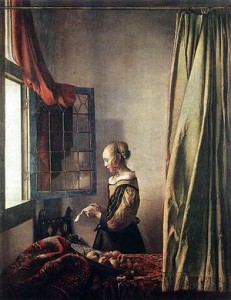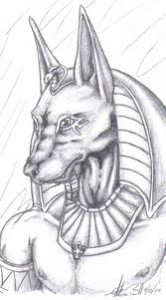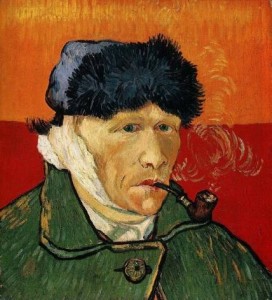Did I mean to stalk the streets in cothurni? Shit, no.
I just failed to foresee the precarious vaudeville wobble
as the head with its chorus surveys what’s unsteady below,
its kibitzing voices tsk-tsking a double hobble
(another fine mess chalked up to clueless hubris),
hands groping for balance but looking as if I would break
into patter-song: oh hamartia, convivial riff.
And a fool might truly say, he’s a dupe of the Fate
that dogs the consumer, scammed with apotheosis
and the heady allure of a glowing ocher toe cap.
But watch me teeter in glory, a pimp Oedipus,
eyes level with second-floor shops for Pedi-Mani.
Elevation was my downfall, catastrophe
my rise. And my marrow’s red honey—fear, pity.
“Pimp Shoes” by Philip Fried was published in Cohort [Salmon Poetry, Ireland, 2009.
Philip Fried (1945― ), earned a B.A. in English at Antioch College, an M.F.A. in Poetry at the Writers Workshop, University of Iowa, and a Ph.D. in Literature at the State University of New York, Stony Brook. On writing sonnets, he has this to say, “I draw inspiration from the sonnet’s origins to update it for the Digital Age. Linked from its earliest days to legal proceedings and a modern psychology of conflicted love, the sonnet held together what wanted to fly apart. I have re-conceived the contemporary sonnet as an arena where fragments of self and samples of lingo play off against one another.” His poems have appeared in such journals as Beloit Poetry Journal, New Orleans Review, Partisan Review, Paris Review and Tin House. The most recent of his five published books of poetry is Early/Late: New and Selected Poems (Salmon Poetry, Ireland, 2011), which was called “skillful and memorable” by Publishers Weekly.
This sonnet is pre-published with the permission of the Editor-in-chief from:Richard Vallance, editor-in-chief. The Phoenix Rising from the Ashes: Anthology of sonnets of the early third millennium = Le Phénix renaissant de ses cendres : Anthologie de sonnets au début du troisième millénaire. Friesen Presse, Victoria, B.C., Canada. © 2013. approx. 240 pp. ISBN Hardcover: 978-1-4602-1700-9 Price: $28.00 Paperback: 978-1-4602-1701-6 Price: $18.00 e-Book: 978-1-4602-1702-3 Price: TBA
300 sonnets & ghazals in English, French, Spanish, German, Chinese & Persian. Selected sonnets are pre-published by our permission in Poetry Life & Times (UK) which has exclusive sole rights prior to the publication of the anthology itself. Readers may also contact Richard Vallance, Editor-in-Chief, at: vallance22@gmx.com for further information. http://vallance22.hpage.com/
***





